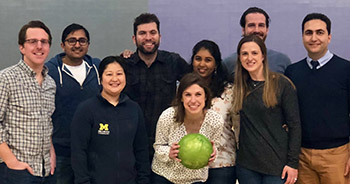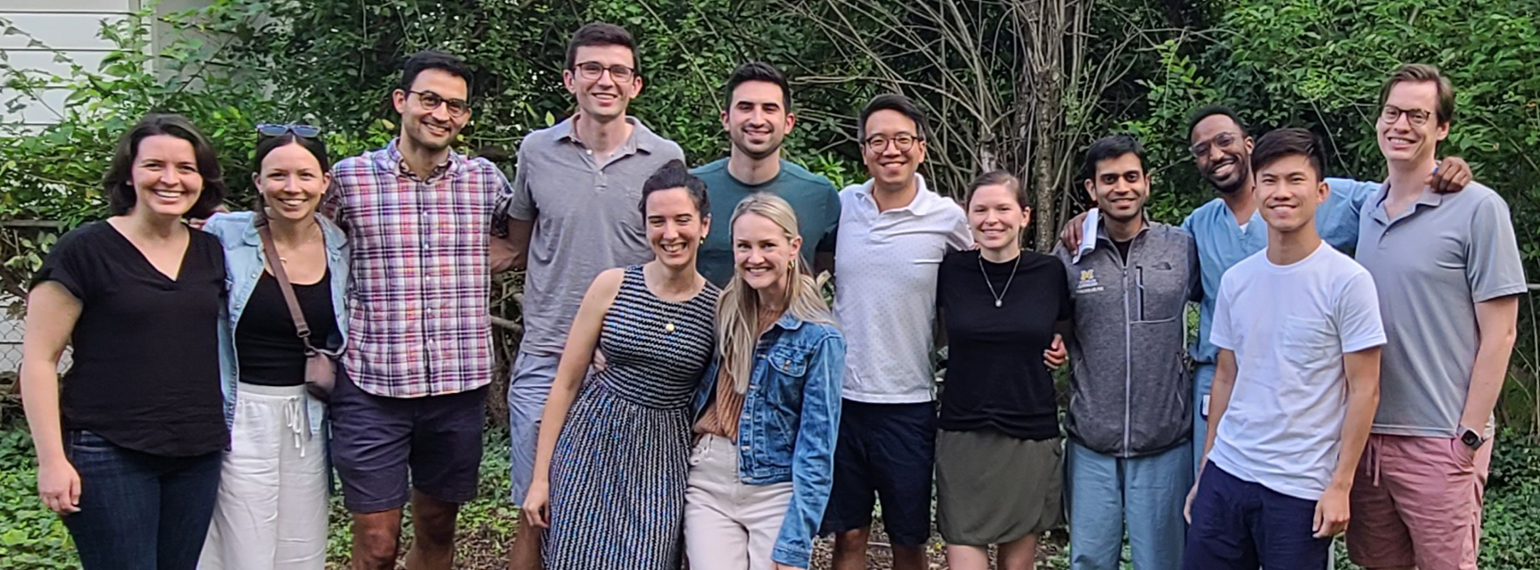


We appreciate your interest in the Cardiovascular Disease Fellowship at the University of Michigan. Our mission is to develop a diverse group of leaders in cardiovascular medicine with skills in clinical care, education, and research. We aim to provide a rigorous and compassionate training program that supports fellows in achieving their fullest potential.
In our fellowship program, the first two years involve a core clinical curriculum. The third year supports opportunities to tailor the educational plan to the unique career interests of each fellow. Our fellows also work with a diverse group of faculty members with national reputations across multiple subspecialties, engaging in both clinical care and research. Our training program encompasses a broad span of disciplines through rotations at both the University of Michigan and the Ann Arbor VA Health System.
The University of Michigan opened the first University Hospital in 1850 and has a longstanding tradition of excellence in training leaders in cardiovascular disease. We continue this tradition by providing comprehensive patient-centered care using cutting-edge diagnostic and treatment modalities in state-of-the-art facilities. Additionally, Ann Arbor is a wonderful place to live, with many diverse cultural opportunities and outdoor spaces.
In this program, our fellows are our greatest asset. We are fortunate to recruit outstanding individuals, and aim to actively empower them throughout the educational process. Our team invites you to explore how Michigan can help you reach your potential!
Sincerely,
Melinda Davis, MD, Program Director
Megan Joseph, MD, Associate Program Director
Marty Tam, MD, Associate Program Director
Diversity, Equity, and Inclusion Identity Statement
We, at the Frankel Cardiovascular Center, believe that delivering the very best heart and vascular care in the world can only be achieved through a culture of respect for one another and by celebrating the diversity of our patients, their families, and our workplace community. We strive to inspire an equitable and inclusive environment that welcomes and respects individuals from all races, ethnicities, gender identities, religions, beliefs, abilities, appearances, sexual orientations, and socioeconomic backgrounds. Diversity is at the heart of our values, improving patient outcomes, enhancing our work culture and optimizing health care.
Fellows Visiting Professor & Wellness Initiatives
Fellows Visiting Professor
Each year the cardiology fellows collectively invite an expert clinician as a visiting professor to the University of Michigan Health System. The fellows spend a two-day time period with the visiting professor where they participate in case-based discussions in a variety of venues.
Fellows Wellness Initiatives

Over the past two years, we have developed a wellness curriculum to discuss topics such as burnout/moral injury, medical mistakes, and how to deal with difficult situations/patient deaths. Outside of the hospital, we have activities to help with team bonding including annual tailgating, bowling, and karaoke. Twice a year, we have a "Beer with a Peer" event where we invite one of our faculty to join us for dinner and discuss their experiences and advice about career paths. There is also a monthly "Joy in Work" lunch in our cardiac critical care unit to help foster unit culture and collaboration between all of the staff.
Alumni
We are incredibly proud of our network of alumni who are advancing cardiovascular care in all regions of the country and world. Please follow this link to learn more about our alumni network, and join our LinkedIn and Facebook alumni groups.
Discover Ann Arbor, Michigan
Apply
Thank you for your interest in the Cardiovascular Disease Fellowship at the University of Michigan (general cardiology). The University of Michigan Cardiovascular Disease Fellowship is a 3-year ACGME accredited program. We participate in the National Residency Matching Program (NRMP). Applications for fellowship starting July 2025 should be submitted through the Electronic Residency Application Service (ERAS). Please reference program ID 1412521096.
Interview dates are TBD. All interviews will be done virtually.
** We will gladly consider applicants with a J-1 visa but cannot consider other visa types.
We look forward to receiving your application and wish you well through the process.
Required Documentation
(Please refer to the ERAS website for specific application and required documentation submission details.)
The University of Michigan offers highly competitive salaries and tremendous benefits to our residents/fellows. An overview of salary, benefits and employment eligibility is available on the Graduate Medical Education Office website.
Contact Us

Peggy Engel, Program Coordinator
Michigan Medicine
2381 CVC SPC 5853
1500 E. Medical Center Drive
Ann Arbor, MI 48109-5853
Phone: (734) 936-8214
Fax: (734) 615-3326
[email protected]




